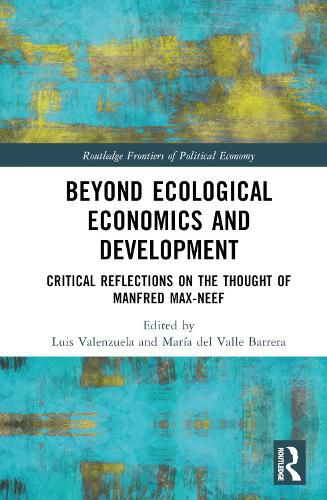Readings Newsletter
Become a Readings Member to make your shopping experience even easier.
Sign in or sign up for free!
You’re not far away from qualifying for FREE standard shipping within Australia
You’ve qualified for FREE standard shipping within Australia
The cart is loading…






The interrelationship among development, environment, and human needs is one of the key issues being faced by the world today. The Chilean economist, Manfred Max-Neef, was a leading thinker on this dynamic, and this book provides both an introduction to and analysis of his work and ideas. Arranged in three main sections - "Human needs and wellbeing", "Development, growth and sustainability", and "Methodology of economics" - the chapters in this book contribute to on-going debates on issues as important as human development, the limits of economic growth, deep ecology, sustainable consumption, entrepreneurship, climate change, interdisciplinarity, and the methodology and practice of economics. The contributors to this volume provide a broad range of different critical perspectives on these issues, and the chapters are arranged in dialogue with each other to provide the reader with a rounded view of the legacy of Max-Neef. This book is vital reading for all those interested in ecological economics, environmental economics, development economics, methodology and philosophy of economics, and heterodox economics.
$9.00 standard shipping within Australia
FREE standard shipping within Australia for orders over $100.00
Express & International shipping calculated at checkout
The interrelationship among development, environment, and human needs is one of the key issues being faced by the world today. The Chilean economist, Manfred Max-Neef, was a leading thinker on this dynamic, and this book provides both an introduction to and analysis of his work and ideas. Arranged in three main sections - "Human needs and wellbeing", "Development, growth and sustainability", and "Methodology of economics" - the chapters in this book contribute to on-going debates on issues as important as human development, the limits of economic growth, deep ecology, sustainable consumption, entrepreneurship, climate change, interdisciplinarity, and the methodology and practice of economics. The contributors to this volume provide a broad range of different critical perspectives on these issues, and the chapters are arranged in dialogue with each other to provide the reader with a rounded view of the legacy of Max-Neef. This book is vital reading for all those interested in ecological economics, environmental economics, development economics, methodology and philosophy of economics, and heterodox economics.